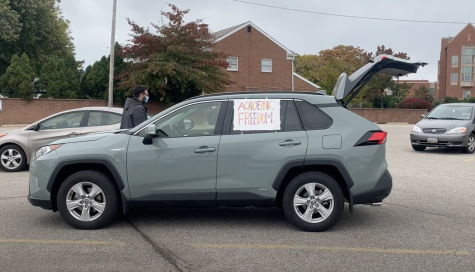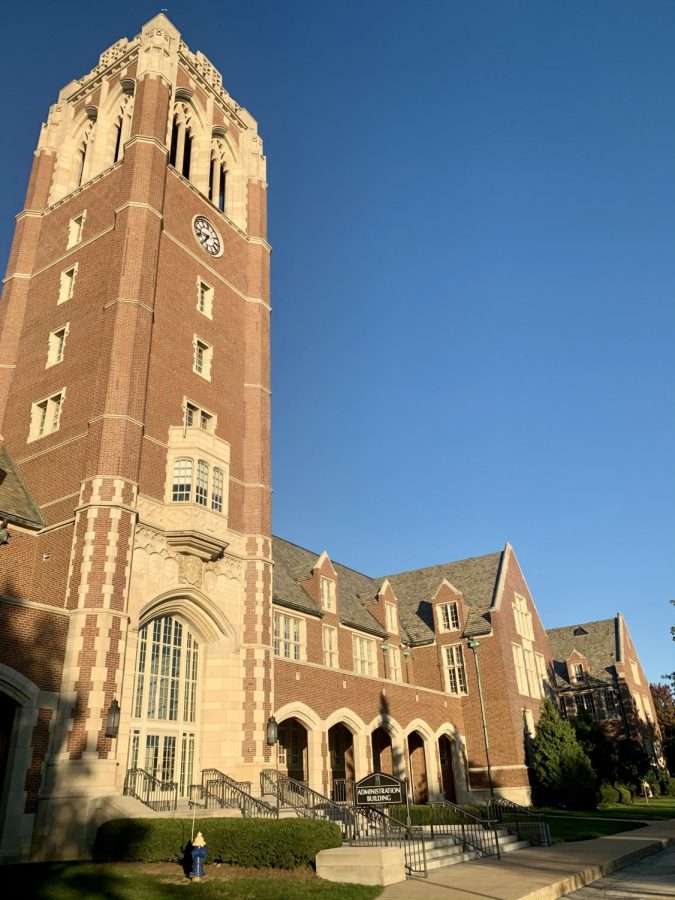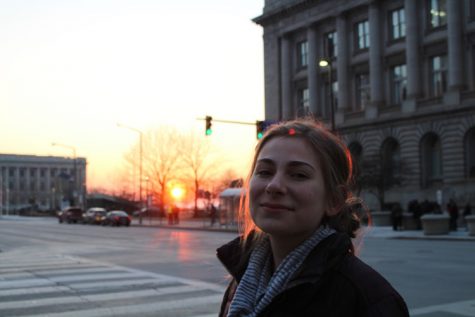University’s draft strategic plan says restructuring is due to “falling behind”
And other universities are feeling it too.
John Carroll University’s draft financial plan says restructuring is due to financial hardship.
Oct 21, 2020
John Carroll University’s draft strategic plan cites financial hardship as a reason for academic restructuring. In an introduction to the plan, University President Michael Johnson writes, “We have fallen behind peer institutions with respect to the affinity that attracts new students and tuition dollars.” By using the plan, the University hopes to prioritize resources to make John Carroll more academically competitive and attractive.
The draft strategic plan, an internal document released in full to faculty and staff for the purpose of extensive consultation before it’s finalized, states that “higher education in the United States is a market with a relatively fixed supply of colleges and universities and declining demand.”
The demand decline follows a declining birthrate caused by the 2008 recession. This steady decline in enrollment is expected to continue until approximately the mid-2020s, aggravating the challenging financial situation many colleges and universities are facing due to COVID-19. According to NPR, “this has already exerted a huge amount of pressure on colleges, particularly small private colleges.”
In response to mounting pressure from COVID-19 and John Carroll’s “historic budget deficits,” the university has reduced academic programs and proposed amendments to the Faculty Handbook that would potentially weaken the protections of tenure for professors. These actions angered alumni and faculty.
It should be noted that the University has a large endowment to fall back on, but is nonetheless facing budgetary restructuring.
“The world of higher ed right now is on fire, not just at John Carroll but everywhere,” said business professor Andrew Welki. “There are all kinds of universities and colleges making decisions about continuing programs, not continuing programs. Needless to say, decisions about programs tend to be ultimately decisions about people.
“It isn’t so much a decision about the person as it is a decision … about a program, and then unfortunately the people associated with the program were affected in the big scheme of things.”

Even with these changes and cutting $20 million from the budget, John Carroll is still at high risk for facing severe financial hardship.
“Over the next year or two, we will start to see these colleges fall away,” said Scott Carlson from The Chronicle of Higher Education to NPR. “They just won’t be able to deal with the kinds of financial pressures that they’ve had on top of the financial pressures that they’ve already had. Of course, that’s going to lead to a lot of damage in the Northeast, in the Midwest and in parts of the South for sure.”
“Why is the board and the president doing [away with] the very thing that attracts people to the university and keeps people connected to the university?” said Kevin Henderson, a ‘11 graduate and organizer of an alumni protest.
While many agree that John Carroll must seriously reduce its budget to remain financially viable, some vocal alumni and faculty say that changing the curriculum through cuts will only further the financial deficit. “If they pass these Faculty Handbook amendments, it will certainly devalue the John Carroll degree and hurt alumni,” said Henderson.
Others, like Welki, say the cuts were difficult but necessary. “The programs that were affected in some of the recent changes were programs that they [administration] were struggling [to figure out what to do] with for years.None of those, I think, were really addressed well.”
Welki added that because this has never happened during his time at John Carroll, many faculty members might be left wondering if their job or program will be next to get cut.
He was concerned about how the recent alumni protest might impact the University’s academic reputation.
“It looks like there are a lot of internal challenges, even in a pre-COVID world,” Welki said. “If you were looking at a situation where it looked like everybody inside the house isn’t getting along, and you were imagining looking at a college, I can imagine a student taking a step back and saying ‘While I might like the place, I’m a little apprehensive about what’s taking place there, and will it affect my academic experience?’”
In the draft strategic plan, Johnson says that John Carroll needs a directive “that closely examines the strengths of John Carroll’s academic programs, invests in new and existing programs that are distinctive and will grow enrollments, and evolves or sunsets programs that no longer draw significant student enrollment interest.”
















Michael Jundi • Oct 25, 2020 at 7:31 pm
Private universities are places in higher education where freedom to learn, grow and go into the world was not contingent on job placement or market trends. People once desired to learn and grow in areas of knowledge that could be applied across various segments of any society. Until our push for a college degree as a prerequisite for employment goes away, all institutions of higher ed are going to trend towards what many would consider a trade or professional school environment. That is not the way to foster a sense of unique identity, and it’s a losing proposition. For profit schools already have striped and streamlined, and they do it cheaper. University education is going to adapt, and hopefully maintain enough identity to attract those higher dollar enrollments.